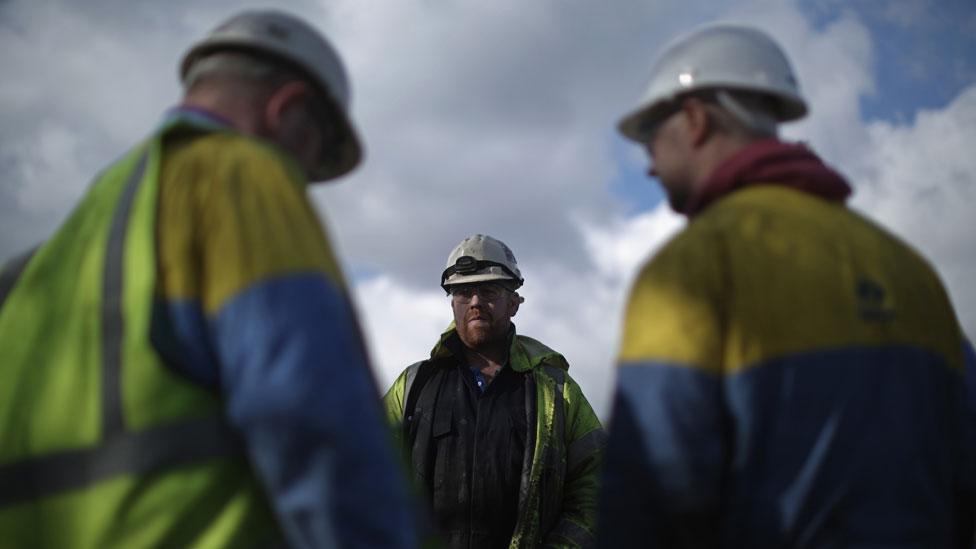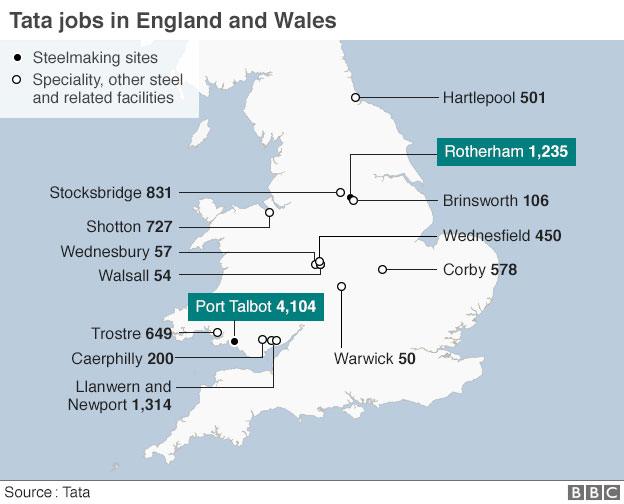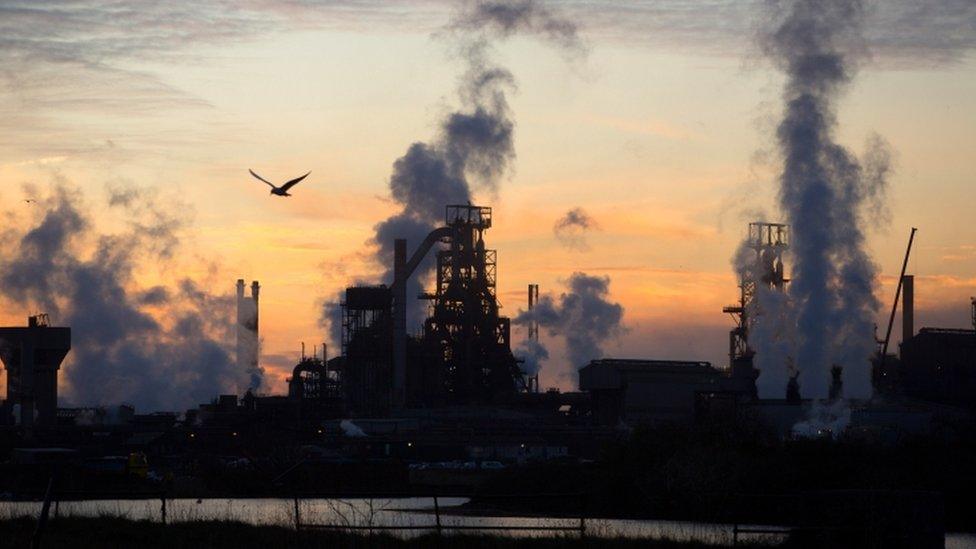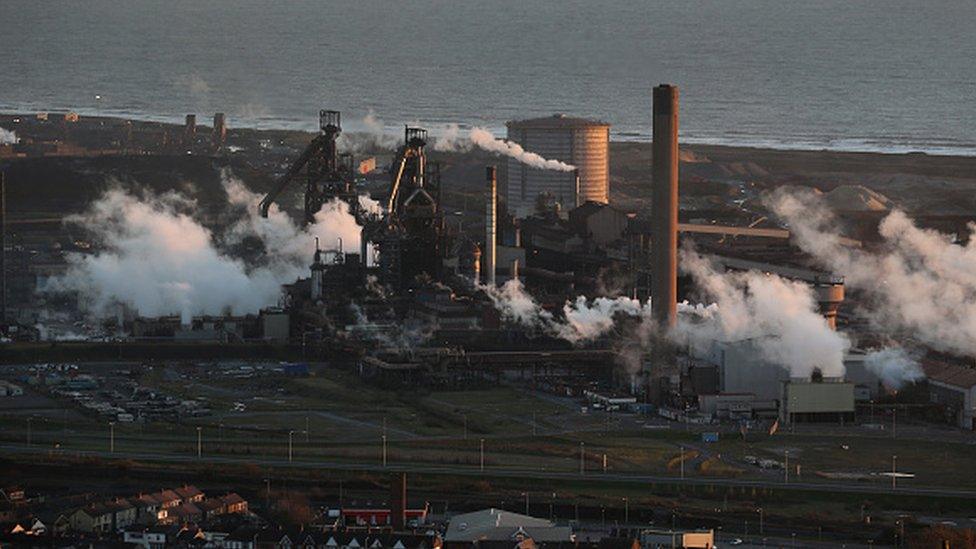Unions back Tata deal on steel pensions
- Published

Unions at Tata have recommended steel workers at its UK plants accept a deal which includes pension reform.
The three unions said the offer was not without issues but was the "only credible and viable way to secure the future".
Agreements on changes to pensions have been seen as essential to future investment, including £1bn at the Port Talbot plant in Wales over 10 years.
A ballot on the offer is expected to go ahead on Monday.
But up until now, unions have been saying the decision for more than 6,000 workers was a personal one, based on individual circumstances.
"We do not make this recommendation lightly," said a joint-statement from Unite, GMB and Community unions.
"Nobody is saying that the proposal on the table is without issues. We fully understand the concerns of members, particularly around the British Steel Pension Scheme (BSPS).
"But as we have said before what you are voting on is the best outcome that could be achieved through negotiation. It is our collective view, supported by our independent experts, that this is the only credible and viable way to secure the future."

Tata's workforce in the UK is in Wales - figures for April 2016
A consultation on changes to the BSPS was announced in December, as part of a deal which included a pact to avoid compulsory redundancies for five years and 10 years of investment.
Under the changes announced, the BSPS would close to future accrual, replaced with a defined contribution scheme with maximum contributions of 10% from Tata and 6% from workers.
An initial offer involved a new pension scheme with contributions of only 3% from the company and 3% from employees.
More than 100 union members from across Tata met on Thursday.
The unions said they had listened to feedback from members, wanting them to make clear what their views were.
"As with any agreement, the devil is in the detail and some of the details have only been finalised this week," they added.
Aberavon MP Stephen Kinnock, who has the Port Talbot plant in his constituency, tweeted: "I am sure that steelworkers will take the steel unions' endorsement of the deal into account, when they are weighing up how to cast their votes".

Analysis from Brian Meechan, BBC Wales business correspondent
The unions are reluctantly recommending the deal because the consequences of rejecting it are ultimately so great.
Initially, the three trades unions said it was a personal matter about personal circumstances.
But it says something about the strength of feeling on the shop floor because the unions certainly believed they had got the best deal possible from Tata.
They thought it was something they could sell to workers but they have been finding it very difficult to convince some of those workers after a turbulent year which started with job losses and then led to a sales process, which ended up being cancelled.
So it seems over the last few weeks that the unions had a genuine concern their members would vote against it.
But in many ways, Tata's workers have been left out of much of the decision-making - most of which has been happening 4,500 miles away in Mumbai. So this is their first opportunity to have that power to decide things for themselves again.
It is unlikely Tata will come back with anything better and First Minister Carwyn Jones has said there is no plan B.
The unions now hope with their backing of the deal that it will be more likely to go through.
- Published9 January 2017

- Published28 December 2016

- Published8 January 2017

- Published7 December 2016
